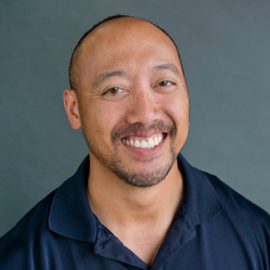For years, the prevailing wisdom was that men and women became weaker and weaker with age. But more and more research has revealed the benefits of exercise on not only a person’s quality of life but also their longevity.
The benefits of strength or resistance training have been especially evident with elderly women. Evidence has shown that even some of the frailest elderly women can increase strength, balance and bone density.
One particular study, done at Tufts University, looked at a group of women age 50 to 70 who began a moderate weight-training program. The women lifted free weights twice a week for 40 minutes/session and by the end of the study; the women had gained an average of three pounds of muscle and lost about three pounds of fat. Their strength increased an average of 75 percent and their balance improved 14 percent. Bone density increased by only about 1 percent, but the women in the control group, who did no strength training, saw their bone density reduced by more than 2 percent. Their improvements also made the women feel stronger and more confident.
Another component of exercise, aerobic fitness, has also been proven to be of significant benefit toward quality of life. One 30-year old study found that a six-month endurance-training program could reverse the decline in cardiovascular fitness that occurs during middle age. This study looked at men in their 20s and again in their 50s. The study indicated that middle-aged men could actually reverse many of the negative results of non-exercise, even after being physically inactive for a long time. They found that 100 percent of the age-related decline in aerobic power that occurred over 30 years in these men was reversed by six months of endurance training. Says Darren McGuire, lead author of the study, “An endurance exercise program using a relatively modest intensity of training was able to return the group to the levels of aerobic power they had 30 years before.
And for those people, who may be at a higher mortality risk due to such things as cardiovascular disease, exercise and physical fitness levels have been shown to be the greatest predictor of how long someone might live. Fitness “was the strongest predictor of mortality that we found,” said Dr. J. Edwin Atwood, a cardiologist at the Veterans Affairs Palo Alto Health Care System. “If you exercise and improve your exercise capacity, you will increase your longevity.”
These findings should be a beacon of hope for all those people who wrongly assume that reduced physical fitness is an inescapable part of growing older. It also sends a strong message that regular exercise should be part of everyone’s lifestyle, and that it is never too late to start exercising.
For a workout that’s specialized just for you, visit our Santa Cruz Fitness Training page.
